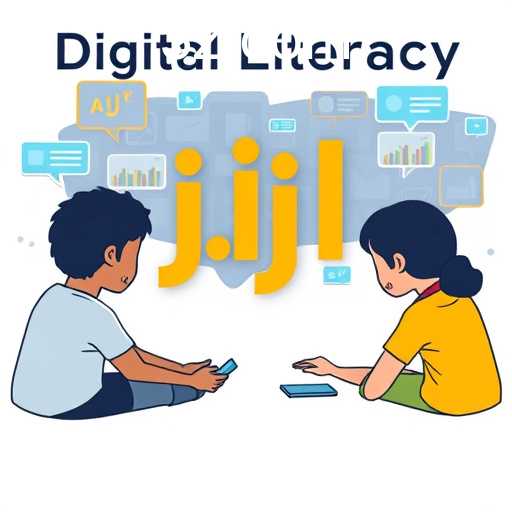In the fast-evolving landscape of education and technology, the concept of digital literacy has emerged as a crucial skill for the 21st-century learner. Recognizing its growing importance, educators and developers have introduced a novel way to enhance digital literacy through engaging and interactive platforms. The burgeoning interest in this field has given rise to a new game category: Digital Literacy.
Digital Literacy games are designed to provide players with essential skills required to navigate and succeed in a digital world. These games encompass a wide range of competencies, including critical thinking, online communication, digital content creation, and understanding digital rights and responsibilities. By immersing players in virtual environments that simulate real-world scenarios, these games offer an experiential learning process that traditional educational methods often lack.
One notable example in this category is the game 'jljl'. This game has gained attention for its innovative approach to teaching digital literacy skills. 'jljl' challenges players to solve problems, collaborate with virtual teammates, and make decisions that have consequences in a safe, simulated digital ecosystem. Through its immersive gameplay and educational objectives, 'jljl' effectively bridges the gap between entertainment and learning, illustrating the potential of games to play a pivotal role in education.
The introduction of the Digital Literacy game category represents a broader trend towards gamification in education. By leveraging the interactive and captivating nature of games, educators can engage students who may not respond to conventional teaching methods. Furthermore, digital literacy games can cater to diverse learning styles, providing personalized learning experiences that adapt to the pace and understanding of each player.
As we look to the future, the significance of digital literacy is only set to expand. In an age where digital interactions are integral to personal, educational, and professional domains, the proficiency of individuals to navigate digital spaces confidently is paramount. The rise of the Digital Literacy game category marks an exciting development in the educational field, opening doors to a wider acceptance of interactive learning solutions.
In conclusion, the emergence of the Digital Literacy category in gaming, exemplified by games like 'jljl', underscores a transformative shift in education. By integrating educational goals with the engaging dynamics of gaming, we are witnessing the dawn of a new era in cultivating essential skills among learners of all ages. As technology continues to advance, the potential for digital literacy games to shape future generations becomes increasingly significant.








